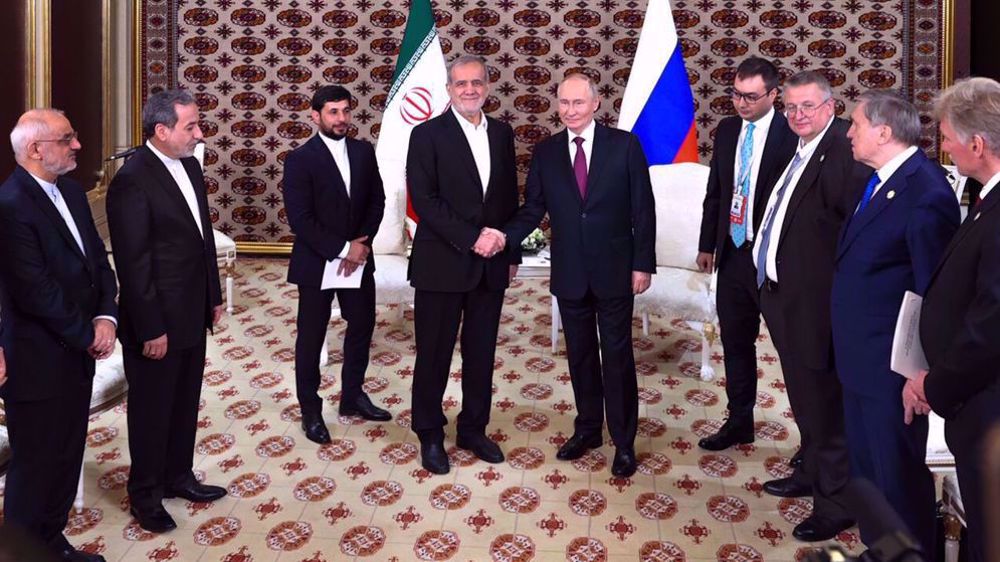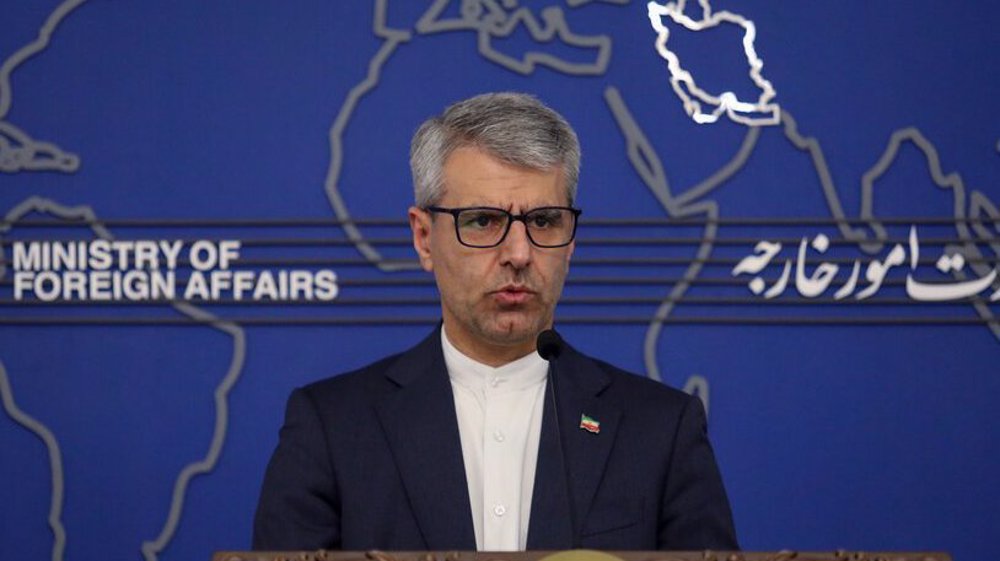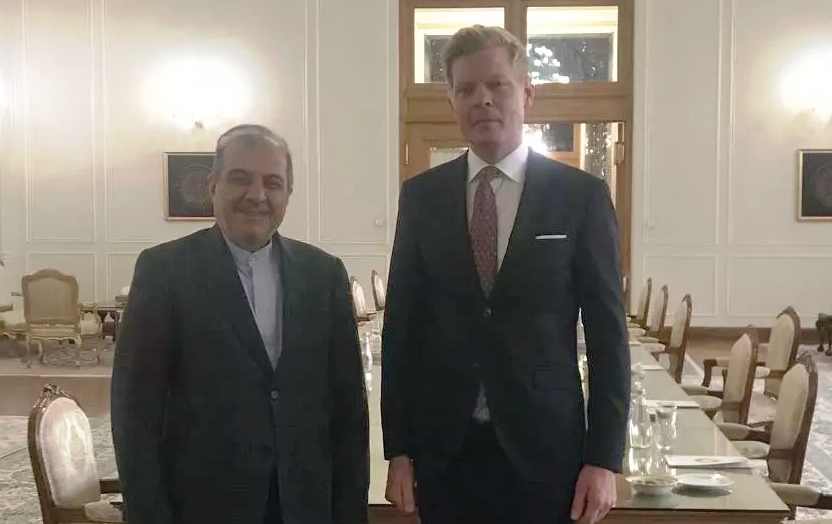Iran: Saudi Arabia in existential crisis of own making
(This is the second news article in the series “Iran’s point man on Middle East.” To read the first, click here. A report of the interview with Hossein Jaberi Ansari is also available here.)
Saudi Arabia has exposed itself to an existential crisis by repeatedly pursuing "abortive policies" on a regional level, says the Iranian administration's point man on the Middle East.
In an exclusive interview with Press TV’s website on October 10, Hossein Jaberi Ansari, senior assistant to the Iranian foreign minister on special political affairs, said Saudi Arabia is following policies that disserve its interests.
"With its abortive [...] policies and its incomprehension of the deep transformations that have taken place around it over the several past decades, Saudi Arabia has exposed itself to back-to-back crises and serious attrition, which has gobbled its entire economy, polity, and existence," Jaberi Ansari said.
"More than anyone else, Saudi Arabia itself is to lose as a result of these abortive policies, because it has entangled itself in a quagmire and a debilitating confrontation on the regional level, and especially in Yemen, [where] it has become consumed by its rhetoric," he added.
'Bottomless chasm'
Leading a coalition of its allies, Saudi Arabia invaded Yemen in March 2015 in an attempt to reinstall a former regime that had resigned amid popular discontent but had been friendly to Riyadh. Saudi Arabia also sought to eliminate the Houthi Ansarullah movement, which took over state matters to prevent the country from chaos, and which Riyadh accused of being "Iranian-backed."
The Saudi-led coalition has also fully blockaded Yemen.
More than three and a half years into that war, Saudi Arabia has achieved neither of its objectives. This is while it had declared at the start of the invasion that the war would take no more than a couple of weeks.
Jaberi Ansari said that the war "has turned into a bottomless chasm for Saudi Arabia." Not only has it not removed Saudi Arabia's purported security concerns in Yemen, it has bogged Riyadh down, he said.
The Iranian official said that Saudi Arabia considers Yemen its "historical backyard" and an extension of the Arabian Peninsula and claims that Iran has entered into that backyard to harm Saudi interests.
"That is Saudi Arabia's rhetoric. In the real world, regardless of what Iran's policy is — we have our own interpretation in that area and others may have theirs — the more Saudi Arabia has gone down that path, the more it has pushed the Yemeni nation away from itself," he added.
'The silent death of a nation'
He said Riyadh is "injecting a hatred of itself" into the Yemeni society. That hatred, he said, is "quietly" spreading even among those Yemeni politicians who are seemingly on the Saudi side.
"Everyone can see that it is Saudi Arabia and the coalition it is leading that have put Yemen on the brink of collapse, disintegration, hunger, contagious diseases, large-scale killing, and the silent death of a nation."
The Saudi war has killed an estimated 14,000 people so far. There has been no official body count, but any such tally is likely to be even higher. Thousands of others have been wounded, and millions have been displaced. Famine and epidemics of cholera and other diseases have also plagued the country.
Jaberi Ansari said the Saudi-led coalition is following "an intentional military policy" of targeting "each and everyone, indiscriminately, to tire the nation out."
'The war has deadlocked'
The Iranian chief regional negotiator said Iran and Europe have been involved in negotiations toward a format to solve the crisis in Yemen.
"The war has deadlocked, in terms of the realities in Yemen, in the region, and the [wider] world," he said. "Neither side is capable of achieving military victory over the other. Based on the realities, we don't see that happening."
Jaberi Ansari said the Europeans agree with Iran that the Yemeni crisis has no military solution and that a full deadlock is in place, and the Iranian-European talks are aimed at ending that stalemate.
Apart from the stalemate, he said, there are security risks to the world.
With the prolongation of the war, the security of international waterways would be endangered and radical and terrorist groups would flourish — with real consequences for the region that would also extend to the whole world, he said.
The Europeans seem to understand this; the Saudis don't, according to Jaberi Ansari.
"One of the fundamental problems that we face [in the negotiations with Europe] is that the main party to the war, namely Saudi Arabia and the coalition it is heading, is [...] pressuring the Europeans immensely not to negotiate with Iran," he said.
The Saudis don't seem capable of using even that opportunity to have a "face-saving exit" from the Yemeni quagmire, the Iranian official said.

'Iran wants no one to lose'
Jaberi Ansari said that from a hypothetical, "narrow-minded" vantage point, continued Saudi Arabian involvement in a debilitating confrontation would benefit Iran, "since Saudi Arabia is today the driving force behind the anti-Iran campaign [...] in the region and the world."
"But we don't look at things that way. We have a long-term, strategic view of the developments."
He also expressed disappointment that Saudi Arabia is continuing to make back-to-back mistakes.
"We are not happy about that — even though Saudi Arabia is our rival," Jaberi Ansari said. "In our strategic outlook, we would like Saudi Arabia to stop its abortive policies [even if] one day sooner rather than later."
'Gaza has won': Social media users react to ceasefire with mix of relief, joy
Iran seeks South Korea’s assistance for AI, fiber-optic projects
VIDEO | Iran's 'Eqtedar' (Power) maneuver
Israel hits HTS military target in Syria for 1st time since fall of Assad
VIDEO | Press TV's news headlines
Israel has slaughtered 13,000 students in Gaza, West Bank
VIDEO | More Zionist than Zionists: Biden’s legacy to be defined by Gaza genocide
Hamas confirms handing approval of Gaza ceasefire deal to mediators













 This makes it easy to access the Press TV website
This makes it easy to access the Press TV website